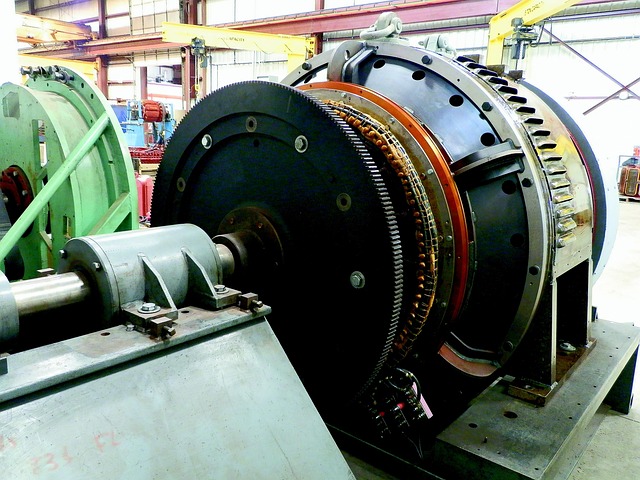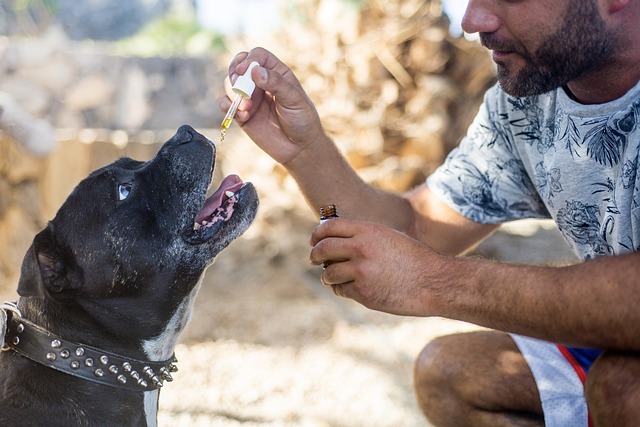Heavy metals, naturally occurring but amplified by human activities, pose significant health risks. They accumulate in the body, disrupt cellular functions, and cause oxidative stress. Exposure occurs through inhalation, ingestion, and skin contact from contaminated sources. As CBD products gain popularity, Heavy Metals Testing for CBD is crucial for consumer safety and quality assurance. This testing detects and quantifies trace amounts of heavy metals like lead, mercury, and arsenic in cannabis plants, ensuring product purity and safety. Prioritizing this testing is essential to protect health, build consumer trust, comply with regulations, and foster market growth. Advanced instrumental techniques are becoming the new standard for accurate and reliable Heavy Metals Testing for CBD.
In today’s wellness landscape, understanding the intricate relationship between heavy metals and health is paramount. This comprehensive guide delves into the impact of heavy metals on our well-being and explores how Cannabidiol (CBD) can facilitate detoxification processes. We uncover common sources of these toxic substances in our environment and provide a step-by-step guide to ensuring safe, pure CBD oil. With an emphasis on heavy metals testing for CBD products, this article navigates the science, regulatory considerations, and future trends shaping this crucial aspect of the cannabis industry.
Understanding Heavy Metals and Their Impact on Health

Heavy metals are naturally occurring elements in the Earth’s crust, but human activities have significantly increased their presence and concentration in our environment. While essential for various biological processes in trace amounts, elevated levels of heavy metals can pose severe health risks. These toxic metals include lead, mercury, cadmium, and arsenic, among others, and they can accumulate in the body over time, leading to a range of adverse effects.
The impact of heavy metals on health is multifaceted. They can disrupt normal cellular functions, interfere with nutrient absorption, and cause oxidative stress. Exposure routes vary, from inhalation or ingestion of contaminated food and water to skin contact. Given their persistence in the environment, it’s crucial to understand the potential risks associated with these metals. Heavy Metals Testing for CBD products is a growing area of interest as researchers explore ways to ensure consumer safety and quality, especially with the increasing popularity of cannabis-based treatments.
The Role of CBD in Detoxification Processes

Cannabidiol (CBD) has gained attention for its potential benefits in promoting overall health and wellness, including its role in detoxification processes. In today’s world, where environmental contaminants and heavy metals are prevalent, ensuring a safe and clean supply chain is paramount. This is where CBD shines; it can aid in the removal of harmful substances from the body.
Research suggests that CBD may contribute to the elimination of toxic compounds, including heavy metals. Through various mechanisms, such as interacting with the endocannabinoid system, CBD could support natural detoxification processes. Moreover, the growing popularity of Heavy Metals Testing for CBD products ensures consumers receive safer and cleaner supplements, enhancing the overall effectiveness of detoxification efforts.
Why Heavy Metal Testing is Crucial for CBD Products

In the realm of CBD products, ensuring product quality and safety is paramount. One often overlooked yet crucial aspect is heavy metals testing. Heavy metals like lead, mercury, and arsenic can contaminate cannabis plants due to various environmental factors, posing potential health risks to consumers. Even trace amounts of these metals can have adverse effects, leading to a range of issues from skin irritation to more severe health complications over time.
Heavy metals testing for CBD products is essential as it protects the health of users. It ensures that the products are free from contaminants, providing peace of mind and enhancing consumer trust. This meticulous process involves advanced analytical techniques to detect even the smallest concentrations of heavy metals, enabling manufacturers to maintain rigorous quality standards. By prioritizing heavy metals testing, CBD brands can safeguard their reputation and demonstrate their commitment to delivering safe, high-quality products.
Common Sources of Heavy Metals in Our Environment

In today’s world, understanding the common sources of heavy metals in our environment is crucial for protecting our health, especially when it comes to products like CBD (Cannabidiol). Heavy metals such as lead, mercury, and cadmium can enter our ecosystem through various means. Industrial activities, including manufacturing and mining, are significant contributors, releasing these toxins into air and water bodies. Burning fossil fuels also plays a role, exacerbating pollution levels. Additionally, improper disposal of electronic waste contains high concentrations of heavy metals, which often find their way into soil and groundwater.
The presence of heavy metals in our environment has prompted the need for rigorous testing, particularly in the CBD industry. Heavy Metals Testing for CBD products is essential to ensure consumer safety. This process involves sophisticated methods to detect and quantify any trace amounts of heavy metals, ensuring that supplements and products are free from harmful contaminants. By implementing such tests, manufacturers can guarantee the purity and quality of their CBD offerings, providing peace of mind for health-conscious consumers.
Symptoms of Heavy Metal Toxicity to Watch Out For

The accumulation of heavy metals in the body from environmental exposure or consumption of contaminated foods can lead to health issues, often only manifesting as subtle symptoms that may be easily overlooked. Heavy metal toxicity can affect multiple systems within the body, causing a range of adverse effects. Symptoms may include fatigue, headaches, and neurological problems such as memory loss and cognitive impairment. Additionally, heavy metals like lead and mercury are known to disrupt endocrine function, potentially leading to reproductive issues and developmental delays in children.
Heavy Metals Testing for CBD is an essential process that helps identify and mitigate these risks. This testing ensures that products containing CBD, a popular dietary supplement, are free from harmful levels of heavy metals, providing consumers with safer options. By screening for toxic elements, manufacturers can guarantee the quality and safety of their products, promoting overall health and well-being without potential adverse reactions associated with heavy metal exposure.
How to Ensure Safe and Pure CBD Oil: A Step-by-Step Guide

When it comes to ensuring safe and pure CBD oil, one of the most crucial steps is heavy metals testing. This process verifies that your CBD product is free from potentially harmful contaminants like lead, mercury, and arsenic. Start by choosing a reputable brand that prioritizes quality control and transparency; many leading manufacturers provide third-party lab results upon request. Next, verify that the CBD oil has undergone comprehensive testing, including heavy metals analysis, to guarantee its safety.
Follow up by checking for proper labeling and certifications. Look for products that display detailed information about their ingredients, source, and quality control measures. Additionally, consider purchasing from retailers known for their commitment to purity and safety standards. By taking these steps, you can rest assured that your CBD oil is free from heavy metals and other contaminants, ensuring optimal health benefits without any risks.
The Science Behind Heavy Metals Removal from CBD Extracts

The process of removing heavy metals from CBD extracts is a critical step in ensuring product purity and safety. Heavy metals, such as lead, mercury, and cadmium, can contaminate CBD during cultivation, extraction, or storage due to environmental factors or manufacturing processes. Regular Heavy Metals Testing for CBD is essential to verify the absence of these harmful substances. Advanced scientific methods, including inductively coupled plasma mass spectrometry (ICP-MS), are employed to detect even trace amounts of heavy metals in CBD products. This rigorous testing guarantees that consumers receive a clean and secure product, free from potential toxins.
Scientists have developed specialized techniques tailored for CBD extraction to minimize metal contamination. These methods often involve sophisticated filtration systems and purification processes. By employing such strategies, manufacturers can achieve high-quality CBD extracts while adhering to strict safety standards. This commitment to quality ensures that the beneficial compounds in CBD, like cannabidiol, remain unadulterated, maximizing their therapeutic potential for various health applications.
Regulatory Considerations for CBD Brands: Compliance with Heavy Metal Standards

In the rapidly growing market for Cannabidiol (CBD) products, ensuring product safety and quality is paramount. One critical aspect often overlooked is compliance with heavy metal standards. Heavy metals testing for CBD is essential as these substances can be harmful if present in significant amounts in supplements and edibles. Regulatory considerations demand that CBD brands implement rigorous quality control measures, including comprehensive heavy metals testing, to safeguard consumer health.
Non-compliance with heavy metal standards can lead to severe legal repercussions and damage a brand’s reputation. Therefore, CBD companies must invest in advanced testing methods to detect even trace elements of heavy metals like lead, mercury, and arsenic. By prioritizing heavy metals testing for CBD, brands can assure customers of their commitment to providing pure, safe, and effective products, fostering trust and loyalty in the market.
Future Trends in Heavy Metal Testing for Cannabis Products

As the cannabis industry continues to grow globally, ensuring product safety and quality has become paramount. One emerging area of focus is heavy metals testing, particularly for CBD (Cannabidiol) products, as it’s crucial to protect consumer health and prevent potential exposure to toxic substances. Future trends in this field are expected to see more sophisticated detection methods, such as advanced instrumental techniques, becoming the gold standard. These technologies enable incredibly sensitive and precise identification of even trace amounts of heavy metals like lead, mercury, and arsenic, ensuring cannabis products meet stringent safety standards.
Additionally, there’s a growing push for regular and comprehensive testing across various stages of production, from cultivation to final packaging. This proactive approach aims to safeguard consumers and build trust in the market by minimizing risks associated with contaminated products. Furthermore, digitalization of testing processes is on the rise, promising faster results and improved data management, which will be critical as the demand for cannabis products increases globally.
